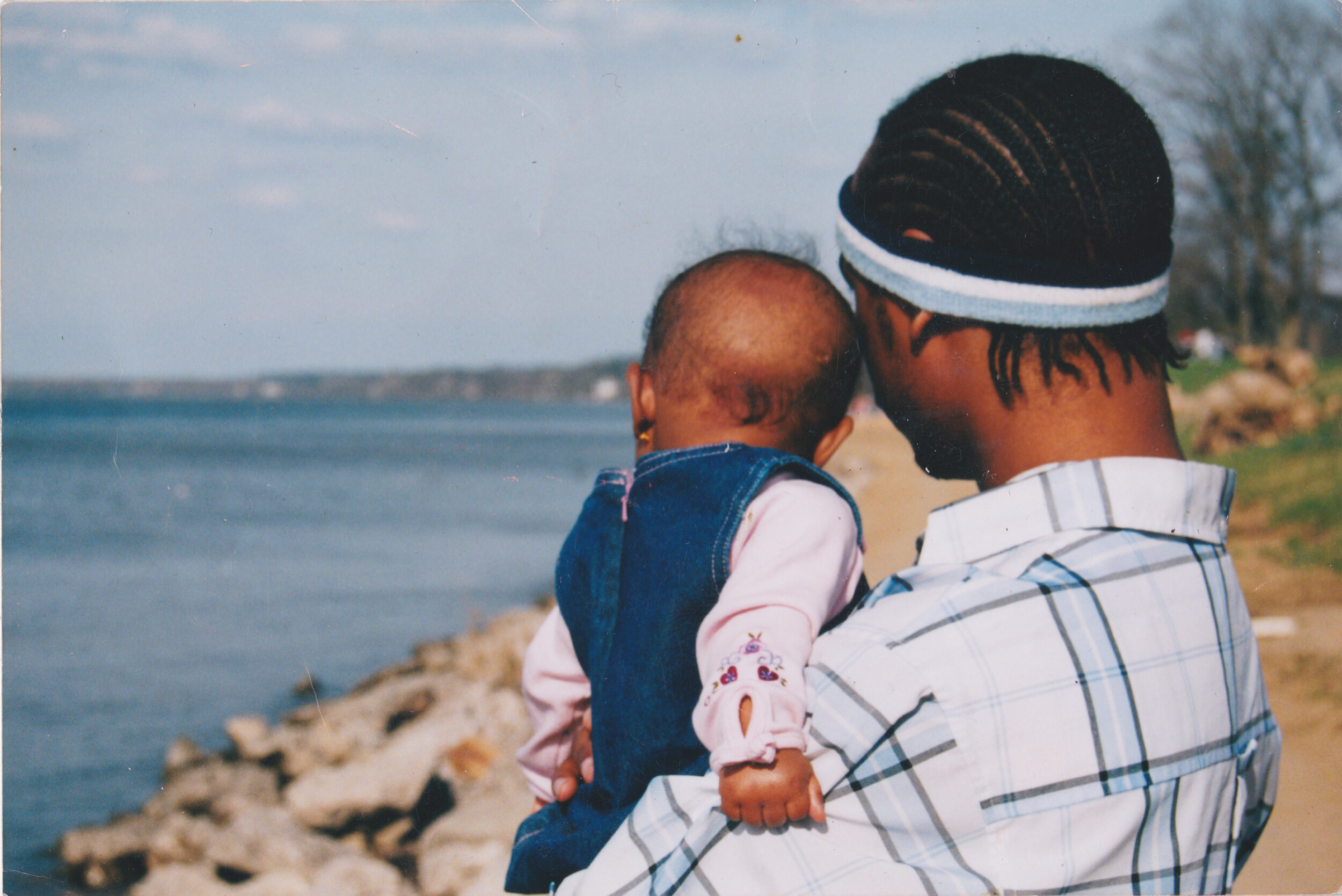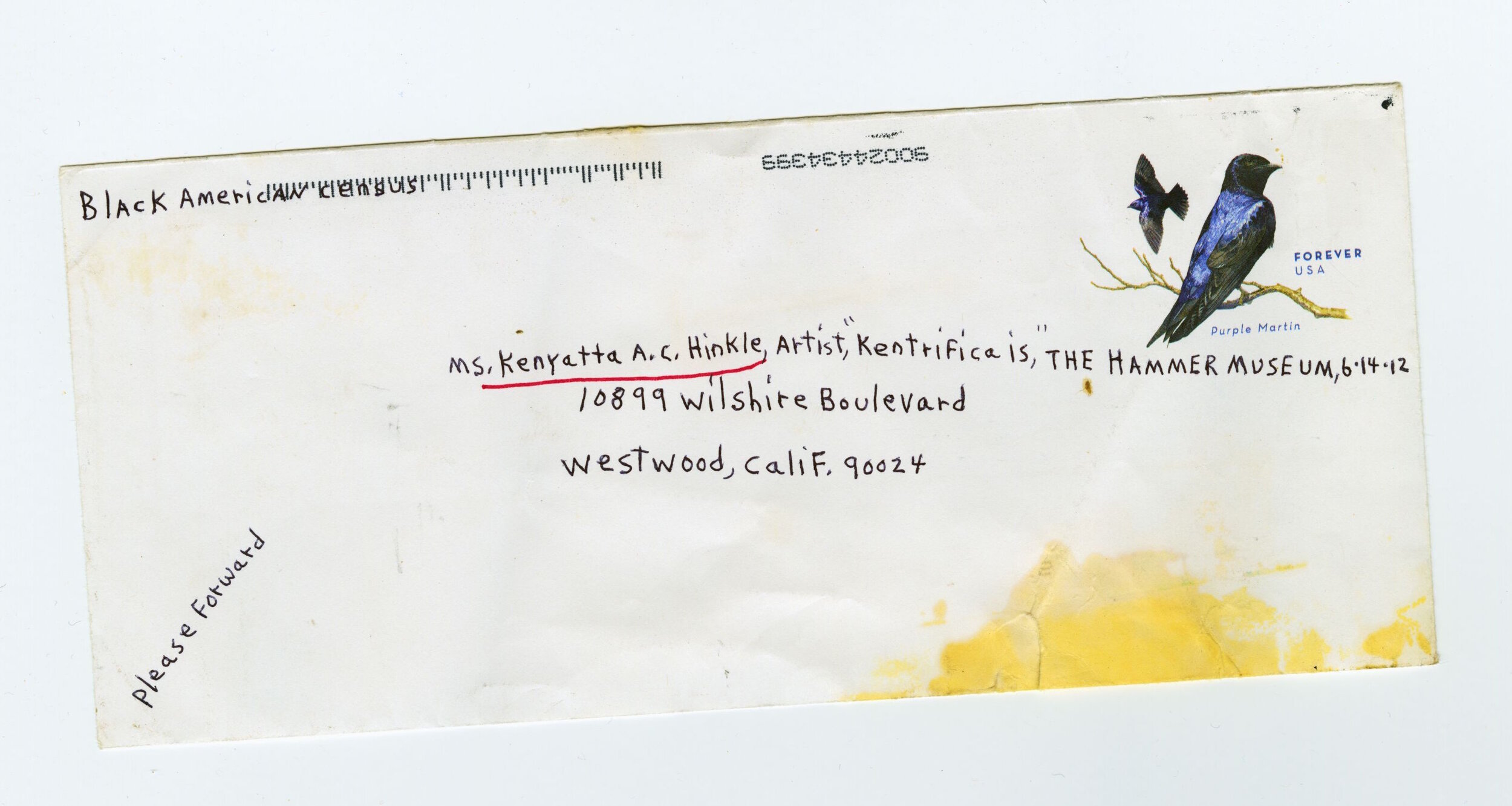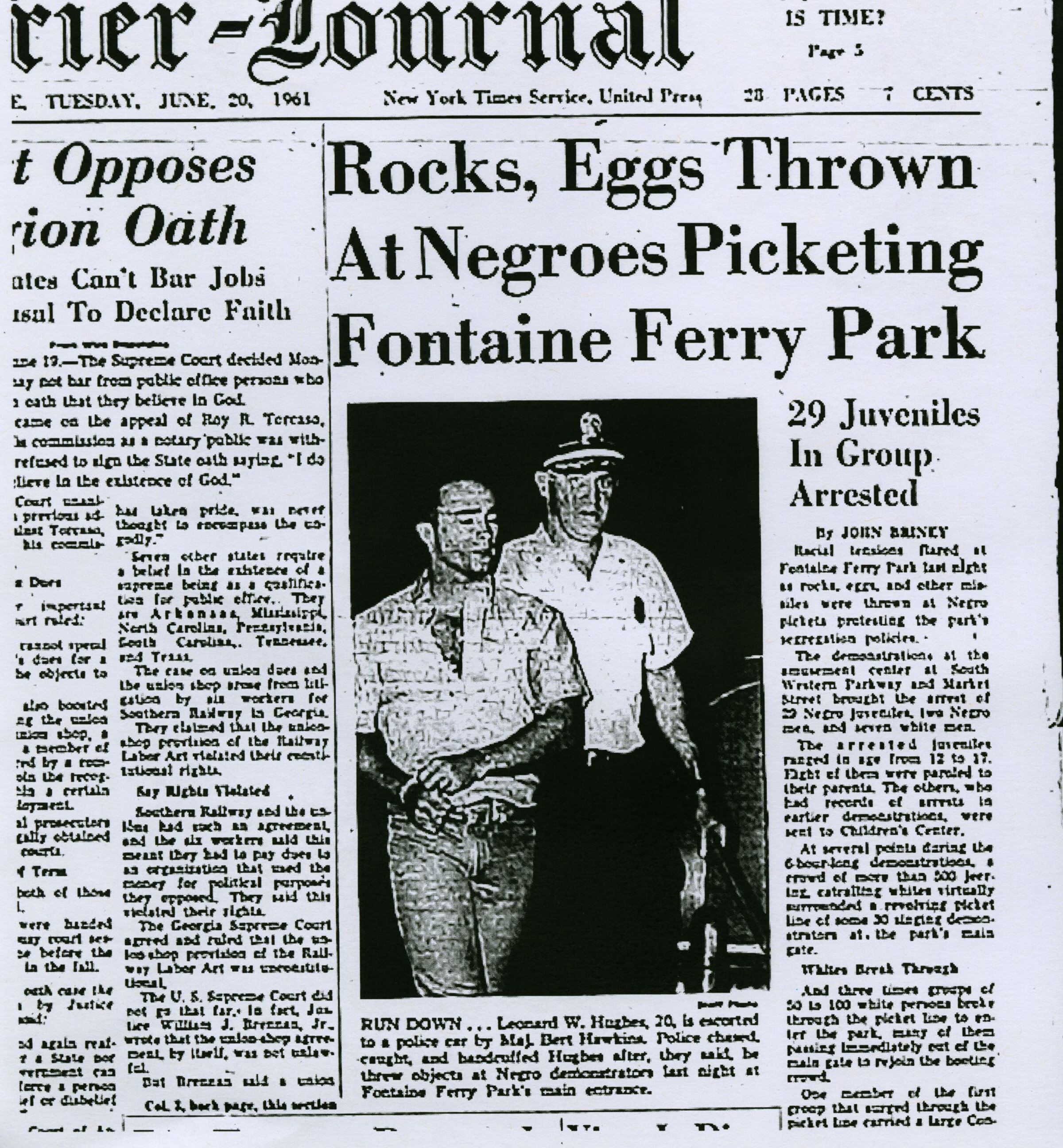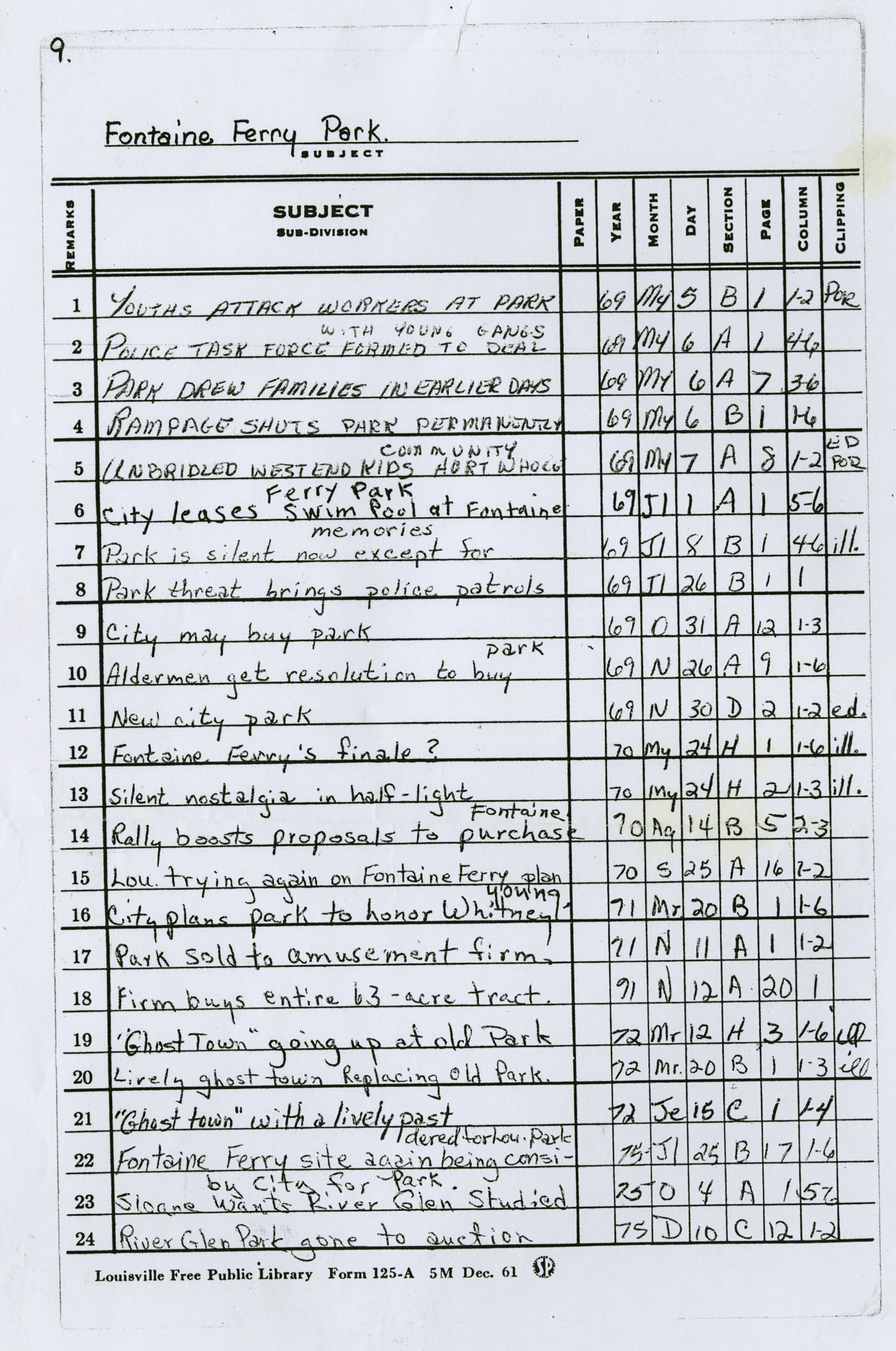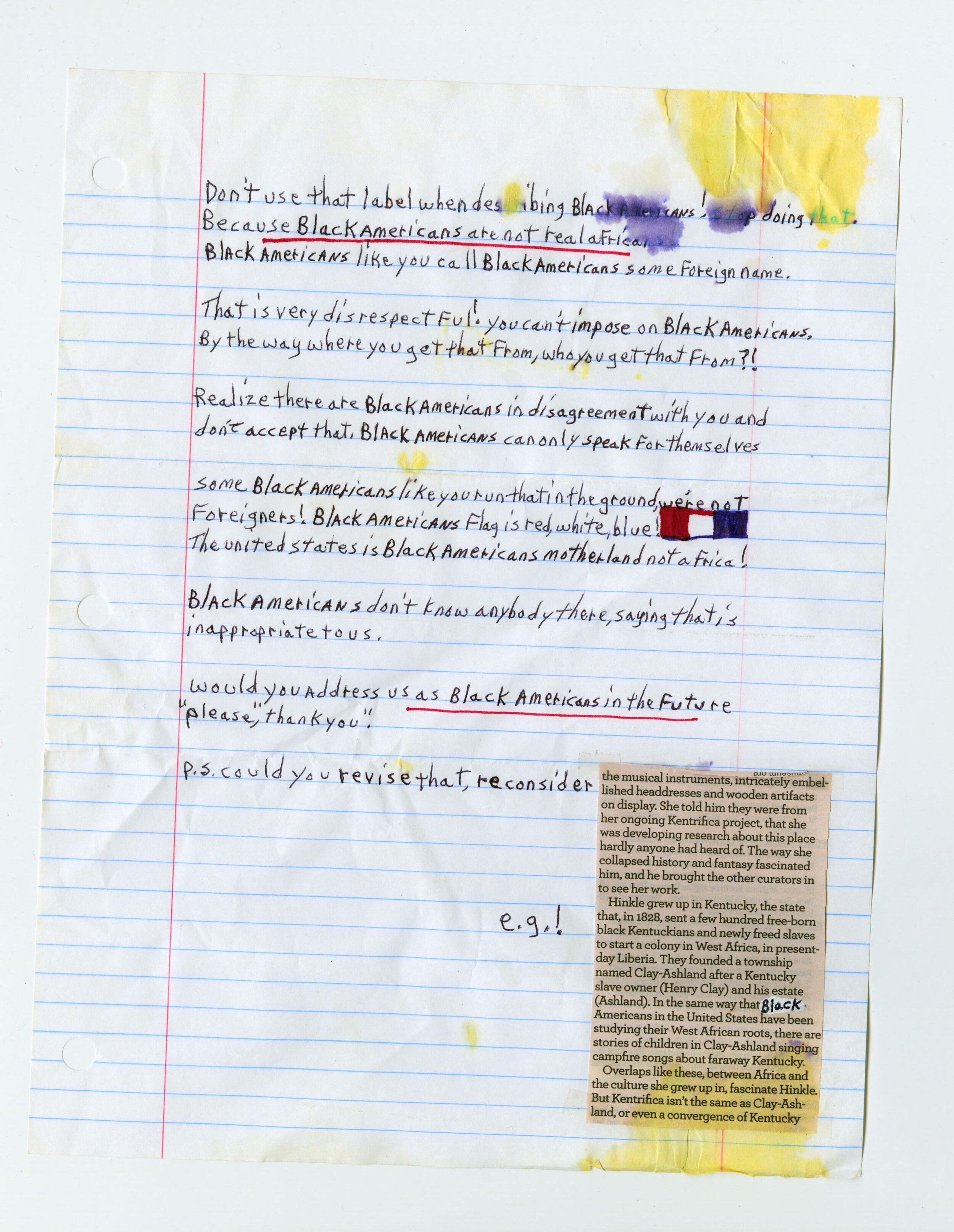Book Review: “SIR” by Kenyatta A.C. Hinkle
By Jen Everett | July 1, 2020
Published by Litmus Press in 2019
One of my first conversations with visual artist and writer Kenyatta A.C. Hinkle took place in a library. As we discussed our creative practices and our lives, she told me that she was trying to heal herself. It was unexpected, and I have never forgotten her words. Reading Hinkle’s genre defying book SIR brought me back to that moment, among the stacks. - Jen Everett
Before beginning SIR, I am struck by its cover, which bears Hinkle’s 2010 work “Lineage of a Kneegrow,” a handwritten genealogy with white text scrawled on a sea of black. I carefully read each name, reviewing speculative relations. Some evoke humor while others are heartbreaking. “Lineage of a Kneegrow” urges me to consider the act of naming. What can a name conjure? Is it an aspiration? A spell? What power does a name hold?
SIR is titled after Hinkle’s brother and it engages complexities of family and history through a framework of naming. Sir’s name is royal, bestowed upon him as the firstborn, male child. The significance of this decision makes an impression upon Hinkle and she asks her mother and grandmother to reflect on their intentions and expectations. She invites them to recall the audacity of Sir’s naming. Through the act of remembrance more stories emerge and are retold. Hinkle makes space for their voices to join hers, space to share knowledge that only Black mothers possess. What Black mothers know but can’t bear to remember or burden a child with. In SIR we are reminded of the limits placed on Black childhood and the fears of Black mothers raising sons. Where can Black boys go to play? To run for sheer pleasure and not out of fear?
SIR begins as an intimate, familial narrative. As it evolves, we are engulfed in a lager, collective history that offers no resolution, only difficult questions and intricate entanglements. As a text, SIR, much like Hinkle’s visual oeuvre, is fluid and hybrid. Conversations appear alongside vernacular photographs, historical records, fragmented memories and experimental writings. SIR moves us across time and space, traveling from Louisville to Baltimore, Lagos, Los Angeles and beyond. Through research and retelling Hinkle excavates patterns that cross borders and blur geographies. Scenes of trauma repeat and overlap, marking the classroom, doctor’s office, drug store, and park as sites of harm. A name, as it turns out, cannot shield a Black mother or her child from the violence of white supremacy.
But even in the midst of racism’s brutal violence, it is clear that Sir’s life is of his own making. And in spite of the world Sir has inherited, he lives in it fully. SIR’s pages teach us about the tenderness of Black families. Hinkle attends to the complex, imperfect yet fierce love between grandmother, mother, son, sisters and brother. She writes of historical terror but also of timeless love. There is love in the letters she writes to Sir and in the record she assembles in his name, a love that is full of possibility.
SIR is available from Litmus Press.
All images from SIR and courtesy of Kenyatta A.C. Hinkle and Litmus Press.

